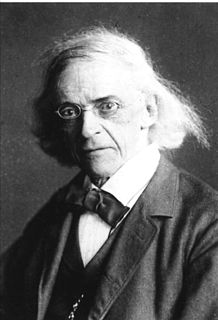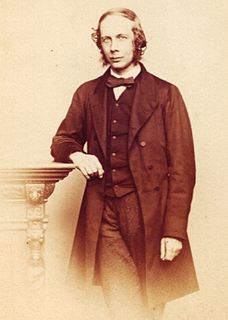A Quote by Theodor Mommsen
The Dalmatian tribes and the Pannonians, at least of the region of the Save, for a short time obeyed the Roman governors; but they bore the new rule with an ever increasing grudge, above all on account of the taxes, to which they were unaccustomed, and which were relentlessly exacted.
Related Quotes
Even so does he who provides for the short time of this life, but takes no care for all eternity; which is to be wise for a moment, but a fool for ever; and to act as crossly to the reason of things as can be imagined; to regard time as if it were eternity, and to neglect eternity as if it were but a short time.
The resistance to my work, and to my way of writing, has been there from the beginning. The first things I wrote were these short short stories collected in At the Bottom of the River, and at least three of them are one sentence long. They were printed in The New Yorker, over the objections of many of the editors in the fiction department.
Correct is to recognize what diseases are and whence they come; which are long and which are short; which are mortal and which are not; which are in the process of changing into others; which are increasing and which are diminishing; which are major and which are minor; to treat the diseases that can be treated, but to recognize the ones that cannot be, and to know why they cannot be; by treating patients with the former, to give them the benefit of treatment as far as it is possible.
I please myself with imagining a State at least which can afford to be just to all men, and to treat the individual with respect as a neighbor; which even would not think it inconsistent with its own repose if a few were to live aloof from it, not meddling with it, nor embraced by it, who fulfilled all the duties of neighbors and fellow-men. A State which bore this kind of fruit, and suffered it to drop off as fast as it ripened, would prepare the way for a still more perfect and glorious State, which also I have imagined, but not yet anywhere seen.
There's more attention paid to entertainers than ever and less that they have to say. Not that entertainers were ever a great beacon of knowledge to begin with, but at least when the Beatles were the leaders of the culture, they had a message. It was brief; it wasn't terribly complicated. "Give Peace a Chance." "All You Need is Love." But at least they were trying. At least they had grown.
The principles on which we engaged, of which the charter of our independence is the record, were sanctioned by the laws of our being, and we but obeyed them in pursuing undeviatingly the course they called for. It issued finally in that inestimable state of freedom which alone can ensure to man the enjoyment of his equal rights.
I don't know that there has ever been a time when Abraham Lincoln didn't stand head-and-shoulders above all other presidents in the historians' eye. But relatively speaking, there have been peaks and a troughs. One peak was in the 1910s-20s; a major trough was in the 1970s-80s. We are certainly on a peak again, something which began in 1994 with Michael Burlingame's 'The Inner World of Abraham Lincoln,' which showed in fabulous detail how many new and untapped sources were available on Lincoln.
We were friends with Jonathan Demme. We were all down on the West Side of New York, and I think I met Kurt Vonnegut through Edith Demme. And then I was lucky to do Who Am I This Time? 1982, which was an adaptation of his short story that Jonathan Demme directed with Chris Walken and I, and that really cemented the friendship.







































